|
14.Feb.2003
Dresden
13/14. Feb.1945
Many thnx for the
english translation, by Rainer Rohde
& Josh Jagdfeld
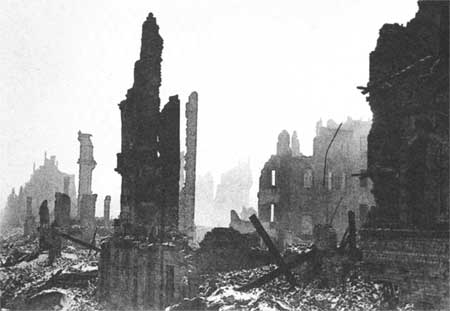
Preface:
This
article is only a small part of the gruesome attrocities committed from
both sides during WWII.
While German attrocities are always judged, analyzed and discussed in
schools, on TV and other media, why aren't the "war crimes of the
allies" treated in the same manner? Why are they falsefied, turned
into petty-crimes or even worse, gloryfied?
The
following article will provide some fact, quotes and opinions which
normally are kept from the public eye.
The question arises: Why?
Introduction:
On
February 13/14 allied Bombers attacked and devastated the City of Dresden,
which was overflowing with refugees, wounded soldiers, children and
elderly.
47 years later, England dedicated a memorial to the man
responsible for the slaughter: "Bomber" Harris.
The Queen of England refuses to apologize,
and former minister Clerk proclaims: "Only
domestic apologize."
As early May 11, 1940, the RAF decided to bomb German cities.
Here a statement from April 18, 1941:
"The
earlier raid against Berlin was not only repercussion,
but part of the regular procedure of the RAF as instructed by the
royal government.
This policy will be pursued until the war is over by the means of
increasing force and will be continued, even if there aren't any more
attacks on England."
Many
view the Dresden slaughter (February 13th - 14th 1945) as the response
to Hitler's attack on Coventry - but the above should out rule such
notion.
So-called
historians also like to cite Hitler to justify the attack on Dresden.
As an example, Josef Nyary quoted Hitler:
"We will eradicate their cities"
(in German Newspaper "Die Welt" on Feb. 13th, 1995).
The original quote was taken out of context and cut in half:
"If they'll attack our cities, we will eradicate
their cities".
Which such butchered "quotes" and the attempts to justify
that Dresden had been the answer to Coventry or London, 'politically
correct' historians try to turn a war crime into a petty crime.
The
raids on Dresden and the following cities:
Kiel, Neumünster, Stralsund, Bremerhaven, Emden, Wilhelmshaven,
Hamburg, Neubrandenburg, Neustrelitz, Prenzlau, Bremen, Hannover, Rheine,
Osnabrück, Hildesheim, Braunschweig, Magdeburg, Berling, Potsdam,
Frankfurt/Oder, Bocholt, Münster, Kleve, Wesel, Dortmund, Hamm,
Soest, Krefeld, Mönchengladbach, Düsseldorf, Aachen, Düren,
Bonn, Köln, Siegen, Koblenz, Trier, Bingen, Bad Kreuznach, Mainz,
Worms, Kaiserslautern, Pirmasens, Karlsruhe, Pforzheim, Stuttgart, Freiburg,
Friedrichshafen, Ulm, München, Augsburg, Straubing, Heilbronn,
Nürnberg, Ingolstadt, Bayreuth, Mannheim, Ludwigshafen, Darmstadt,
Offenbach, Hanau, Frankfurt, Gießen, Schweinfurt, Würzburg,
Gießen, Kassel, Nordhausen, Merseburg, Leipzig, Chemnitz, Eilenburg,
Halberstadt, Magdeburg, Gelsenkirchen, Oberhausen, Witten, Duisburg,
Hagen, Wuppertal, Solingen, Neuß, Remscheid, Brilon and Aschaffenburg
were
said to only target industrial sites, but in reality the allied command
targeted the civilians with the goal, to break their will and demoralize
the population to trigger a revolt against the Nazi regime.
The
allied plan failed and hatred towards the allies grew in spite of such
atrocities.It's known that bomber crews that had to bail or ditch over
German territory were killed by the angry mob.
The
reports on the destruction of Dresden reached their faulty climax in
the reporting of the death toll:
Death Toll:
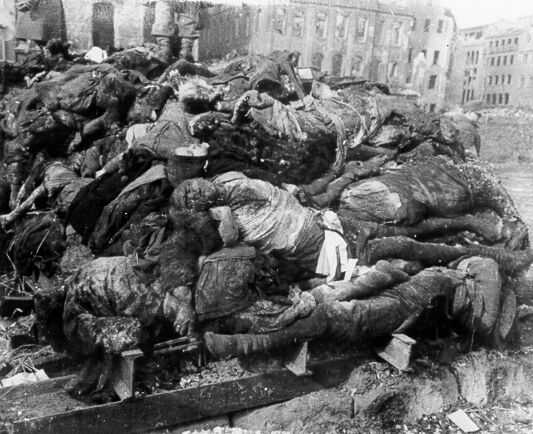
Still
today, ignorant historians conveniently lie about the death toll
by the hundred thousands.
Those people like to mention roughly 35,000 to 60,000 perished.
35,000 can only be used to reference the dead in Dresden that could
be identified - but considering the fact that the surface temperature
during the firestorm reached up to 1,600 centigrade; everyone should
realize that most people burned to ashes or unidentifiable chunks of
flesh.
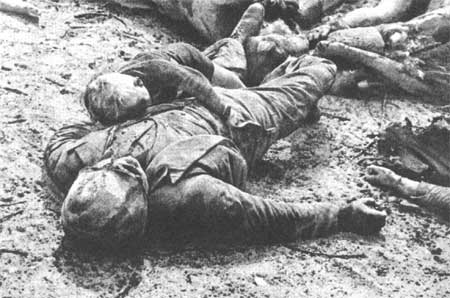
As a fact, it's widely accepted that more than 12,000 houses burned
to rubble during the raids. During this time there were more than 1,2
Million people in Dresden. 600,000 Dresden citizens, plus 600,000 refugees
from Breslau.
It's
easy to realize that inside the 12,000 houses with multiple floors at
least 30-50 people were sheltered. Some of those may have made it into
an air-raid bunker, but that doesn't mean that they were safe there.
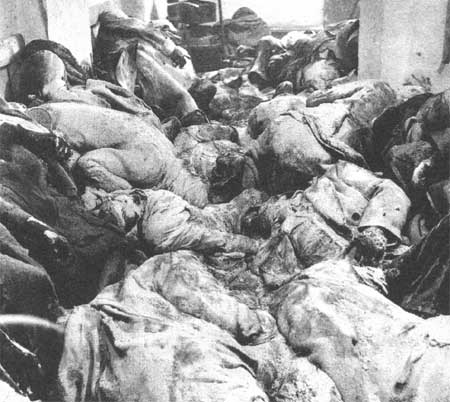
A
Luftschutzkeller (bomb shelter) discovered in April 1946
crammed with 243 dead bodys.
Based
on this idea, the death toll would lie between 360,000 to 600,000,
but the ignorant shamelessly speak of only 35,000.
In
regards to that, Eberhard Mundra, chair of the "Bautzen-Komitee
e.V." (Bautzen Committee), writes:
"According
to a note from the former "Generalstabsoffiziers"of the Dresden
Defense, retired of the Bundeswehr (the post WWII German Army), Matthes:
"35.000 dead were fully, 50.000 dead partially,
and 168.000 not identified."
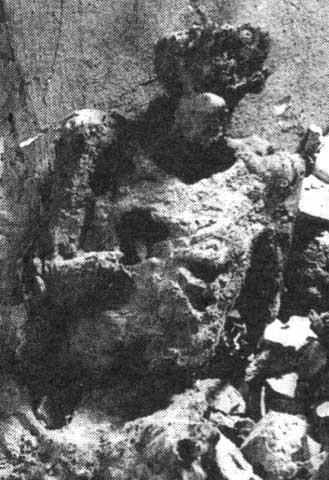
This
corpse were
discovered 1947
in a Luftschutzkeller.
All those children, elderly and wounded soldiers that were burnt to
ashes,
of course, couldn't be identified at all.
Franz
Kurowski in his book "Bombs over Dresden":
"The notion that the actual number of people
missing was actually much higher than the lists of missing people reported
lies in the special role Dresden had: Between 500,000 - 600,000 refugees
from other cities came here to seek shelter. Many of those refugees
groups were completely destroyed, so that nobody was left to issue a
report on who was missing. That is especially true for those refugees
whom were given shelter by Dresden families and then burnt to ashes
in their cellars. Who would be left to search for those refugees? Here
we can apply what we can apply for all catastrophic events: Every survivor
only searches for his/her missing relatives and friends.
And friends or relatives those refugees were not… "
During
excavations of the old Dresden market, discoloration of sandstone
from yellow to red three meters below street level were found.
Partially, sand became glass.
Berlin
Archeologist Uwe Mueller:
"We learned, that temperatures as high as
1,300 - 1,400 degrees centigrade and no oxygen existed 3 meters below.
On the surface, the temperatures were most likely even higher…
so that only ashes would remain from humans burning to death."
In
regards, former Chancelor †Dr. Konrad Adenauer wrote:
"The attack on Dresden, which was overflowing
with refugees, on February 13th 1945 caused around 250,000 dead."
(source: DEUTSCHLAND HEUTE, Wiesbaden 1955, page 154)
Dresden
was considered a "Hospital City", without military presence
and without military installations. Dresden served as a huge refugee
camp.
The ceilings were marked with the red-cross.
The
International Red Cross, in their "Joint-Relief 1941-1946"
memo,
reported the Dresden death toll to be as high as 275,000.
The
higher police and SS leader
The "Befehelshaber" of the order police
Dresden, the 22.March.1945
Order of the day Nr.47
" ....until March 20th, 1945 202,040 dead,
mainly women and children, were found, of which only 30% could be identified."
The
area, in which the firestorm raged, burned down every house in the
15 Kilometer area of cultivated surface.
The fire storm, made by 650,000 fire bombs, rained two days and two
nights.
Goebbels spoke of 40,000 casualties in Dresden,
although he had reports of about 350,000 to 400,000 victims.
This decision had political reasons. He didn't want to support the allied
plan
to negatively affect the german morale.
Also, after the war, superordinate political interests were more important
than an objective determination of the victims.
High casualties disturbed the concept of the reconciliation.
The higher police -und SS leader
The Befehelshaber of the order police
Dresden, the 09.March.1945
"...... less than 100 dead ones were Wehrmacht
members."
Our
cities became crematoria
At the murder night, of 13.- 14 February 1945,
Winston Churchill throwed 700,000 incendiary bombs on Dresden.
On two inhabitants and/or refugees came thus at least one bomb.
In addition "Die Welt" wrote 3.3.1995 on page 8:
"As the cities became crematoria…
Professor Dietmar Hosser by Institut for building
materials,
massive construction and fire protection, Braunschweig,
mentioned that above the ground even temperatures
up to 1600 degrees celsius (2912 F) prevailed."
From
the sky came the deadly "release"
"The genocide at the german locations destroyed
80 per cent of all German cities with more than 100,000 inhabitants".
The air raids of the allied war criminals:
"40,000 tons of bombs in the year 1942, 120,000 tons of bombs in
the year 1943, 650,000 tons of bombs in the year 1944 and in the four
last war months of the year 1945 again 500,000 tons of bombs "
(Die Welt, 11.2.1995, S. G1)
.
The
first bomb attacks
Its well known that England and France declared War on Germany
on September 3rd, 1939.
But it's not often mentioned that England had already started
the bombardment of German cities in 1939.
05.Sep.1939: First air raids on Wilhelmshaven
and Cuxhaven.
12.Jan.1940: Bomb attacks on Westerland/Sylt.
Whereupon the instruction of the German OKW followed :
25.Jan.1940: Prohibition of air raids on
the British motherland including
the ports, with exception of the docks of Rosyth and the attacks in
the
context of the mine war.
20.March.1940: Kiel and Hoernum on Sylt
is attacked with incendiary bombs.
Direct hit on a military hospital.
In April 1940 further attacks from English bombers took place on areas
without military meaning.
11.May.1940: After Churchill became on
10 May Prime- and defense Minister of Great Britain, he ordered, without
informing the public, immediately the beginning of the bomb offensive
against the German civilian population.
The report of the OKW determines to 18.May 1940
again unmethodical British bomb release on non-military goals and warns
of the consequences.
30.May.1940: German note at France treatment
concerned of shot pilots: "documents of British-French cruelty".
Only now, on the 14th-15th of November 1940,
did Germany start
its first air raids against industrial areas of Coventry, months after
the beginning of the bombardment of german civilians by England.
International voices :
On the occasion of a military-historical conference in Freiburg,
on invitation of the military-historical office for research of the
German Federal Armed Forces in September 1988,
American, British, German, French and Italian military historians,
for one week, discussed the air warfare in WW 2.
The Frankfurt general newspaper dedicated likewise in September 1988
a detailed article with the results of this conference:
"Bombs on the cities".
Author of the high-interesting contribution was Professor Guenther Gillessen.
One of several interesting results of the historian conference was this:
"It is strange that the German armed forces held to their traditional
maxims of moderate warfare until the end, while the two western democracies
decided ot use the revolutionary, radical air war."
And still, another highly interesting conclusion was drawn:
"Nevertheless, it is not to be denied that the principles of the
general international law of war forbade the total strategic bombardment…"
The historians felt that the indiscriminate bombing war as an error,
but not only of Sir Arthur Harris, or the Bomber Command.
The responsibility meets the entire British Air Force staff,
above all however, the political leaders, particularly Churchill
and Roosevelt including the majority of their peoples.
Further results of the conference:
(source:
Spanische daily
paper "SUR" 3.3.1995 on page 8)
1)
England and the USA obeyed the thesis of the strategic bombardment
on cities, while Germany and France regarded the Air Force as a kind
artillery for the support of the ground troops (Blitzkrieg) and military
without exception goals selected.
2)
That was the reason, why already 1939 german civilians were bombed by
the RAF. As the Germans bombed Canterbury and Bath, they explained expressly,
that this is the retaliation (the German rockets V1 and V2 were retaliation
weapons, whereby the V stood for retaliation (Vergeltung), for crimes
of the Englishmen in accordance with the convention of Haag.
3)
The German goals Guernica, Warsaw and Rotterdam were all military
goals within the combat zone.
4)
All historians had completely the same point of view about the fact
:
strategic bombardments on pure civilian cities are war crimes and in
absolute contrast to the convention of Haag.
Churchill
wanted to roast German refugees
The British historian David Irving quoted on 13 February 1990, on the
occasion of a lecture to 45. Anniversary of the destruction of Dresden
in the Dresdner culture palace, the war criminal Churchill:
"I would not like
to have suggestions, how we can destroy war-important
goals in the surrounding countryside of Dresden, i would like have
suggestions , how we can roast 600.000 Refugees from Breslau."
However to roast the germans was Churchill
and Roosevelt not enough.
On the next morning they sent then low fliying planes,
wich killed survivors, mostly women and children, at the Elbufer
(River border of Elbe)with their on-board
weapons.
(some historians doubt this, see "Tieflieger
over Dresden" )
P-51 mustangs of the 352., 356., and 359. Fighter group as well as
English Mosquitos shot on 14 February 1945 at defenseless old people,
women and children.
Gas
Attacks
At the 4.Juli 1944
Winston Churchill asked the britschen planning staff about the possibility
of gas attacks.
As his suggestion was rejected, Mr. Churchill answered among other things:
"…
I must ask you to support me with the use of gas.
We could attack the cities at the Ruhr and many different other ones
in such
a manner with gas , that the largest part of the German population needed
constant medical support."....
My opinion is :
There was only one reason why England dont attacked Germany with gas.
The british experts feared that the germans developed a much more
potential gas.
This thesis supports also the commander in chief of the RAF,
Charles Portal, at the 08.Juli 1944 with the words:
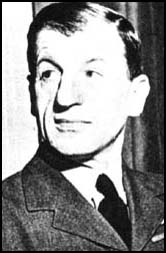
Charles Portal
"With
the unlimited use of gas, a new level of escalation in bombing
warfare is reached that defying international laws by becoming a weapon
of mass destruction."
His suggestion
was to fill only each fifth bomb with poisonous gas
since this would not be noticeable in such a way.
But
nevertheless gas attacks were planned,
only german agents prevented the attacks.
At the coast of Italy the ships with the war gas were attacked by german
bombers and sunk.
Further quotations
Franz Kurowski
(Bomben über Dresden):
"Regardless,
what a criminal has done, his judges cannot commit the same crimes,
without ending up on the same level to become murderers themselves.
The difference is: They have won the war and could judge others,
without being judged.
They weren't punished at all. Furthermore, as with "bomber"
Harris,
memorials were built to remind everyone how successful they were
in destroying German cities, killing more than 600.000
German women, senior citizens and children.."
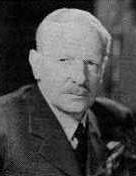
Bomber Harris:"Dresden?
There is not such a place any longer."
"I want to point out, that besides Essen, we never actually considered
any particular industrial sites as targets. The destruction of industrial
sites always was some sort of bonus for us. Our real targets always
were
the inner cities."
Medical
officer O`Flanagan (Brtitish Bomber Command):
"None
of our pilots had a clue that today's target was Dresden.
The briefing began and sounded harsh:
You have joined the RAF to kill Germans - and that is what you
will do tonight."
The briefing went on:
With the collapse of the eastern front, many refugees were seeking shelter
from the cold (and probably the Red Army) and ventured westbound into
Dresden. Dresden was the only city with houses still intact to shelter
the masses
of refugees. One could expect that Dresden was crowded."
He
continued:
"Tonight, our attack has only one goal -
to destroy the city and its inhabitants!
There
was no usual mentioning that this was a military or industrial target.
Disgust
replaced enthusiasm as the bomber crews returned home.
Some vented their feelings during the debriefing.
Especially a Canadian and an Australian voiced their opinion and demanded:
Never ask us to participate in such sorty!"
The
clown of the circus Sarrasani:
The evening conception in the circus Sarrasani was sells off.
Dresden gave relaxation and diverson of the war.
Around 21:40 the circus was informed of the air raid sirens,
because they could not be heard over the din of the circus arena.
Mrs. Stosch Stosch-Sarrasani called the clown "August" aside,
to tell him that he should announce the air raid alarm to the people,
and advise them to go home.
August hurried to the center of the arena, tripping at the edge,
but somersaulting skillfully, he then somersaulted again into
the middle of the arena.
"Ladies and Gentlemen, the last act of our
show must be cancelled,
because our "friends" from across the canal are once again
on the way.
It is an air raid. Please go home immediately, and go to bed normally.
This alarm will most likely end like all others.
Who would have reason to attack Dresden, anyway?"
There was hesitation, then restrained applause.
The puzzled audience rose calmly, and walked patiently to the exits.
Sadly, the first bombs fell while people were still on their way
home from the circus..
Not much of the circus remains.
The bombs engulfed the tent in flames, destroying it.
Furthermore, many of the employees' and animals' fragments were
scattered around.
Much blood was spilled, however, of the 16 young male and female
horse riders, only 2 survived.
Dr.
Arnoldi - a witness of the post-attack confusion:
"The
tarmack here was boiling.
Who continued to run past that point, got stuck within a few short meters."
Some
Hitleryouth members saw during their rescue efforts,
how some 60 meters away people were sinking into the liquid tarmack,
barely making it onto the sidewalk.
Privat
stuff
As
mentioned before, other city fell victim to the perverted
bombardments on residential areas to break the German moral.
The
RAF and the US Air Force dropped about 7560 tons of high explosive and
incendiary bombs over Dresden alone.
Here the "Top 20" of allied raids:
01.
Berlin = 68.285 Tonnen
02. Köln = 48.014 Tonnen
03. Hamburg = 38.319 Tonnen
04. Essen = 36.825 Tonnen
05. Duisburg = 30.535 Tonnen
06. Kiel = 29.946 Tonnen
07. Frankfurt/M. = 29.209 Tonnen
08. Bremen = 25.513 Tonnen
09. Mannheim = 25.181 Tonnen
10. Stuttgart = 24.919 Tonnen
11. Dortmund = 24.783 Tonnen
12. Hannover = 23.051 Tonnen
13. Gelsenkirchen = 22.885 Tonnen
14. Nürnberg = 20.401 Tonnen
15. München = 18.851 Tonnen
16. Düsseldorf = 18.652 Tonnen
17. Leipzig = 11.427 Tonnen
18. Bochum = 11.177 Tonnen
19. Karlsruhe = 10.598 Tonnen
20. Magdeburg = 9.914 Tonnen
During
war-time, my family lived in Essen-Karnap close to Gelsenkirchen.
An area, that was bombed with 59,710 tons of bombs.
Story of my father as he was ca. 10 years old :
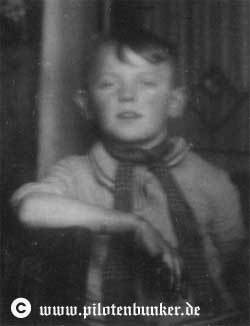
Father
"From
the blast of the bombs and air-mines the roof tiles were swept
away from the rabbit hutch.
I walked with my grandpa on the Ruhrglas street, looking for some grass
to pepair the roof of the rabbit hutch.
We walked the street with our small wooden cart
as we saw a twin-engined "tommy", with a bomb underneath,
at the sky.
We
continued our way, since we thought that
the Tommy wouldn't bother
to attack a little boy and his Grandpa.
But wrong! The Tommy turned towards us.
We jumped into the ditch and his bullets impacted on the street close
by.
Now he should have realized that we were no soldiers.
When we got out of our hiding-place , we saw that the "tommy"
turned around to line up for another attack.
My grandpa said: "He saw us, we must hide"."
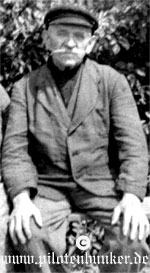 Great-Grandfather
Great-Grandfather |
We ducked deeper into the ditch
and then suddenly there was a great bang.
In the attempt to catch us with his bomb,
he hit a Gas valve of the Company Ruhr Glas.
I
don't know if he thought he killed us,
but after the second strafing run on a
10 year old and his Grandpa, this Hero
of the RAF turned away and disapeared.
|
The
air-raid sirens went off once again as my grandfather was arriving home
from work and was ready to sit down and have some lunch.
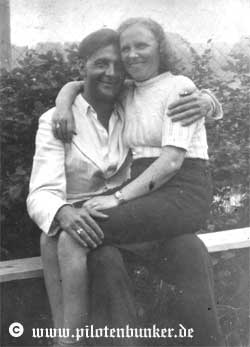
Grandpa and Grandma
Grandma
packed the most needed items and wanted to leave for the
nearby bunker she always used during air-raid alerts.
Although Grandpa never went into any bunkers, he could be persuaded
to actually go.
He decided to follow later, since he wanted to eat his lunch first.
On
the way to the bunker they always went to and were to meet with
Grandpa this time, my father, without obvious reasons, said he didn't
want to go there after all and insisted to go elswhere.
So they went to a pub called "Gaststaette Triebe", whose beer
cellar
was also used as a public shelter.
To
this day my father doesn't know why that day he didn't want to go
to that bunker. Grandma and father sat in that beer celar as the bombs
rained down. Grandpa went to the bunker and wondered, where they were.
After
the attack grandma and father ran back home to meet up with grandpa.
Since he wasn't there, they went on to the bunker and saw from far that
it had received a direct hit.
An air mine has hit it and many bodys with white foam from their mouths
were carried onto the road. In this chaos, grandma saw someone being
carried who wore a jacket that looked like granpa's work jacket and
had
to be him. A neighbor turned her away from the scene saying: "You
won't
see anything nice here, better don't look!"
She
went back home, but there she saw his work jacket on the hanger,
so she returned to the bunker. She again was stopped there because
there were no survivors.
My grandfather was beheaded and had one leg torn off from the impacting
air-mine. An eye-witness stated later that grandpa, during his first
bunker visit ever, remaind at the entrance and didn't go inside saying:
"If an bomb hits here, at least my head is
still outside".
The
last words, my Grandma and my father heard were:
"Those "Tommys" won't get my porkchop!"
("Tommy"
was known to have been a nick name for the British,
but in the Essen/Gelsenkirchen area this term was used for any airborne
enemy)
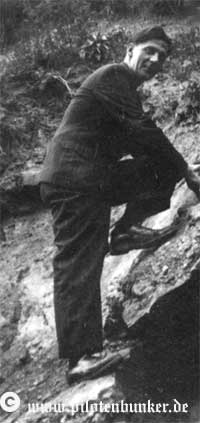
Grandpa
Six
weeks later my great-grandfather died in the previously
mentioned beer celar of "Gaststaette Triebe".
A bomb hit sent beer barrels flying and he was crushed by one of them.
|


